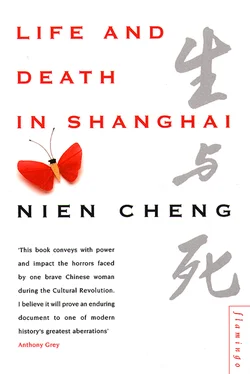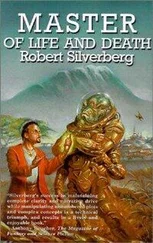Both Lao Chao and Chen Mah suggested that I should be suitably dressed for going out, as the lady next door had had an unpleasant encounter with the Red Guards who had confiscated her shoes and cut open the legs of her slacks, when she went out to visit a friend. So before setting out from the house to go to the bank, I put on an old shirt, a pair of loose-fitting trousers borrowed from Chen Mah and my exercise shoes. As the August sun was strong, Chen Mah handed me the wide-brimmed straw hat my daughter had brought back from the country after working in a rural commune in a programme for students to help the peasants.
The streets were in a ferment of activity. Red Guards were everywhere. There were also many idle spectators. At this juncture of the Cultural Revolution, the ‘enemy’ was the capitalist class so the majority of the population felt quite safe. To them the activities of the Red Guards were spectacular and entertaining. Many of them were strolling through the streets to watch the fun.
Groups of Red Guards were explaining to clusters of onlookers the meaning and purpose of the Cultural Revolution. I listened to one group for a little while and was puzzled and surprised to hear the Red Guard speaker telling the people that they would be ‘liberated’ by the Cultural Revolution. Hadn’t the people been liberated already in 1949 when the Communist Party took over China? Was that liberation not good enough so that the people had to be liberated again? It almost seemed to me that the Communist Party was making self-criticism. But that was unthinkable. I dismissed what I had heard as unimportant, perhaps merely a slip of the tongue by the young speaker. In fact, to liberate the proletariat again became the theme of the Cultural Revolution. Mao was to claim that his opponents in the Party leadership headed by Liu Shao-chi and Deng Hsiao-ping had revived capitalism in China. However, this was not revealed until much later in the year.
Other Red Guards were stopping buses, distributing leaflets, lecturing the passengers and punishing those whose clothes the Red Guards disapproved of. Most bicycles had red cards bearing Mao’s quotations on the handlebars; riders of the few without them were stopped and given warning. On the pavement, the Red Guards led the people to shout slogans. Each group of Red Guards was accompanied by large reproductions of Mao’s portraits mounted on stands and drums and gongs. At many street corners, loudspeakers were blaring revolutionary songs at intervals. In my proletarian outfit of old shirt and wide trousers, I blended with the scene and attracted no special attention. I walked steadily in the direction of the bank.
Suddenly I was startled to see the group of Red Guards right in front of me seize a pretty young woman. While one Red Guard held her, another removed her shoes and a third one cut the legs of her slacks open. The Red Guards were shouting, ‘Why do you wear shoes with pointed toes? Why do you wear slacks with narrow legs ?’
‘I’m a worker! I’m not a member of the capitalist class! Let me go!’ the girl was struggling and protesting.
In the struggle, the Red Guards removed her slacks altogether, much to the amusement of the crowd that surrounded the scene. The onlookers were laughing and jeering. One of the Red Guards slapped the girl’s face to stop her from struggling. She sat on the dusty ground and buried her face in her arms. Between sobs she murmured, ‘I’m not a member of the capitalist class!’
One of the Red Guards opened her bag and took out her work-pass to examine it. Then he threw the pass and her trousers to her. Hastily she pulled on the trousers. She did not wait for them to give her back her shoes but walked away quickly in her socks. Almost immediately the same Red Guard seized a young man and shouted, ‘Why do you have oiled hair?’
I did not wait to see the outcome of this encounter but went straight to the bank. In China, every bank was a branch of the People’s Bank which belonged to the State. There was no brass railing or small windows. The tellers sat behind a plain wooden counter to deal with the depositors. I approached one of the women and placed my deposit slip on the counter in front of her.
Before I left the house, I had considered how much cash I should withdraw. The two deposits past the maturing date were for 6,000 yuan (approximately £1,000) and 20,000 yuan (approximately £3,300) respectively. The cost of living in China was low, as were wages and salaries. In 1966, 6,000 yuan was a large sum of money; 20,000 yuan represented a small fortune. The bank was really a department of the government. Those who worked there were charged with the task of encouraging savings so that money could be channelled to the State. During political campaigns the tellers had the power to refuse payment of large sums of money to depositors even when the deposits had matured. Sometimes they would demand a letter of approval from the depositor’s place of work to certify the reason for the withdrawal. To avoid a possible rejection of my request to withdraw my money, I decided to cash the lesser sum of 6,000 and to renew the 20,000 for another year. But I had no difficulty whatever. The teller handed me the cash without uttering a single word and before I had finished counting the bank notes, she had already picked up her knitting again. Although the walls of the small bank were covered with Cultural Revolution slogans and a number of Big Character Posters, the atmosphere inside was a contrast to the tension generated by the Red Guards on the streets.
As I stepped once again onto the sun-baked pavement, I rather regretted that I had been too timid to try to cash the larger sum. At the same time I was glad I had encountered no difficulty. I headed for home, but when I turned the corner, I was almost knocked down by a group of excited Red Guards leading an old man on a length of rope. They were shouting and hitting the poor man with a stick. I quickly stepped back and stood against the wall to let them pass. Suddenly the old man collapsed on the ground as if too tired to go on. He was a pitiful sight with his shirt torn and a few strands of grey hair over his half-shut eyes. The Red Guards pulled the rope. When he still did not get up, they jumped on him. The old man shrieked in pain.
‘Dirty capitalist! Exploiter of workers! You deserve to die!’ shouted the Red Guards.
My heart was palpitating wildly. The sudden and unexpected encounter with the group of Red Guards and the close proximity of the suffering old man combined to give me a fright and made me think of Mr Hu. I wondered how he was faring. Nearly two weeks had passed since he had visited me. I thought I really ought to telephone him to see if he was all right. I slipped away and hastened towards my house. The streets were now even more crowded than an hour before. The Red Guards were seizing people indiscriminately. There were loud screams of protest and tearful pleading from the victims. When I saw that they were seizing women with permanent waves and cutting their hair off, I was really thankful that Chen Mah had given me the large straw hat to wear to cover my curly hair. There were quite a number of policemen on the streets but they were just watching.
It was a relief to leave the busy shopping area behind me. The residential streets were more peaceful. However, when I turned into my street, I saw a large crowd of people in front of my house. They were looking at a Big Character Poster pasted on the front gate of my neighbour’s house across the road. He was the chief engineer of the Shanghai Aluminium Company, formerly a Swiss firm taken over a few years earlier by the Chinese Government. Workers of the plant had put up the poster on his front gate denouncing him as a ‘running dog of Swiss imperialism’. Beside the poster was a smaller one written in a childish script. It was signed by my neighbour’s two small children who had joined in the denunciation of their father and vowed to sever their relationship with him. This unusual poster from an eleven-year-old and a ten-year-old was the reason for the crowd.
Читать дальше












